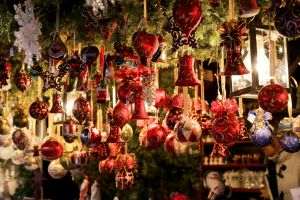• Interview with Mihai Ionescu, the secretary general of the National Association of Importers and Exporters of Romania (ANEIR)
Reporter: How would you describe the economic relation between Romania and Russia?
Mihai Ionescu: The economic and Commercial relationship between Romania and Russia is a special one, because it started off at a certain level in 1989, when Russia was our main partner, for exports as well as imports, and after the so-called revolution, an attitude of repulsion took place among the members of society, as well as among business people, towards Russia. There is even a certain shame among businesspeople when it comes to mentioning the word "Russia", even though they had contracts, they had ongoing businesses. Basically, the relationships between the two countries came to a halt.
Reporter: What is the reason behind this?
Mihai Ionescu: The reason was that continuing to have relationships with Russia basically amounted to continuing to support communist ideas in Romania. The same thing happened over there. The other countries of the former communist block, as well as the capitalist countries, had no shame at all when it came to continuing their relationships with Russia, and even growing them further, because Russia is a very big market, with a great financial potential. There are 140 million people living there, who need clothes and need to outfit their households, and we were the ones who provided them with consumer goods especially.
Reporter: I understand that both countries are guilty for the end of the bilateral commercial relations...
Mihai Ionescu: Yes, we are to blame, but so are our Russian partners. The Russian population was sick of wearing, consuming, furnishing its homes with communist products made in Romania. Just like Romanians wanted to have all the things they could from the West, even though many times the products were very low quality, so did the Russians. The Romanians woke up earlier. In Russia, even now they still have conservative currents that reject the idea of buying goods from the former communist block.
Reporter: Did Romania do anything later to set things right?
Mihai Ionescu: Ever since 1996-1997, for four years, we organized over 20 economic missions, with almost 1000 businesspeople, we took them to tens of republics and regions, to rebuild the ties. Once there, we found authorities, regular people and businesspeople eager to resume the ties with us. With them, just like with us, export and import were state owned monopolies. With us, privatization was a lot quicker in this sector, and enough private investors appeared who took business into their own hands. Over there, the process wasn't as quick.
Reporter: And what did they do, concretely?
Mihai Ionescu: Well, since they did not have any specialized companies that would do the import, since this involved having foreign trade specialists, they went with the following method: "you bring merchandise to Russia, you get it into the warehouses - first in Moscow, and they then opened warehouses in other areas -, we come and take the items from those warehouses one by one, we get them into the stores, we sell them and after that we pay you". Another option was to give us an advance payment when we took the merchandise over there, and then pay the outstanding amount upon settlement, or, another option - to pay when they took the merchandise out of the warehouses.
Also, there was also that type of trade which the Russians still have: the bazaar system. Russia is full of such bazaars, where all kinds of retailers act as intermediaries.
Romanians were, and still are incapable of adapting to these styles of trading. The only ones who had the strength to do this are those Western companies, which either opened up their own stores, such as IKEA, which spread all over Russia, or built their own warehouses where they stored the imported goods and then started distributing them from there. This type of trade means having an organizational structure in Russia where you know what to import, you are able to do the distribution yourself, which is very difficult and to have capital available, knowing what you can rely on. Unfortunately, our SMEs weren't capable of anything like this.
Reporter: Does this mean that the Romanian goods are not available on the Russian market?
Mihai Ionescu: No, it doesn't mean they aren't present on that market, but they get there via Western companies. We have seen in the Russian stores Romanian products being sold at extremely high prices, and we have proposed to them to give them those products directly, ten times cheaper, but they didn't want to do it, because they would have had to do the imports themselves and pay. Also, when Russians see "made in Romania" written on a product, they won't buy it, but if they see "made in Italy" or "made in France", they do.
There are still a few joint venture companies, which have banded together and do business together, in the furniture industry, for instance, but very few of them. With the light industry, we tried to open an office there, we struggled for about a year, but we were unsuccessful. The ANEIR opened two representative offices over there - one in Moscow and two in the territory -, but we were unable to pass this organizational barrier, we couldn't find people capable of doing imports, and so we gave up.
Reporter: Still, our exports to Russia have increased ten times in the last decade. Why is that?
Mihai Ionescu: The Russians who invested here, in various sectors, are taking their products home. These are our exports, but we are not the ones doing the exporting; they come here, they manufacture the goods and then send them back, which isn't bad, it is an opportunity for us. The second chance is to grow, or to try, as the Russian trade becomes more modern, to create joint ventures, in the areas of production and trade, to function on their market. Until then, we can make import export joint-ventures.
Reporter: How are the authorities helping you?
Mihai Ionescu: Since 2000, we have been asking to use the offices of our embassy in Moscow, so we can open a center for promoting our products. Half of the offices of the embassy are empty, we have found legal and organizational solutions for using that area. All the foreign ministers have said yes, but they never went through with it, because of bureaucracy. We have a way of thinking, of acting, which is extremely harmful.
No one should expect that the Russian market would be waiting for us. I am skeptical that the Romanian private sector will have any major chances over there. It's still foreign investments, the partnership through multinational corporations and joint ventures which we need to create which will help us enter the Russian market.
Reporter: How much did our earnings from the trade with Russia fall after 1990?
Mihai Ionescu: Prior to '89, more than half of our exports used to go to the Russians and we earned over 4-5 billion dollars. At one time, this figure had shrank about 100 times, to about 40 million dollars, in the first years after our Revolution.
Now, exports to Russia have increased to about 10% of the total, but we have been replaced. We have organizational difficulties.
We could compete with wines, on their market, but we need an offensive, we can't just stick the goods on the shelves and wait for them to sell.
At any rate, Russia also saw a stratification of it society, with extremely serious social disruptions. There are very few who have the financial strength to buy luxury products. The other 90% are just making ends meet. That is why on the Russian market you can't afford not to take quality seriously.
Reporter: In conclusion we should strive to improve our economic relations with the Russians...
Mihai Ionescu: Everybody who trades with Russia stands to benefit. The market is generous enough and allows those who manage to enter it to benefit. I advise Romanians to push forward, we have cooperation on every possible level, we are stimulating the presence in the fairs, all types of goods have high demand.
I don't think a power as big as Russia should be avoided, from an economic and commercial point of view. On the contrary, their proximity, and the tradition of our relationships with them, should encourage us to get closer to them.
Reporter: Thank you!
• MARTIE 2012
• Romanian products at the "Sankt Petersburg International Fair"
For the first time, Romania was present with a national booth, bearing the brand for industrial products "Romania, your reliable trade partner", at the "Sankt Petersburg International Fair", which took place between March 13th - March 15th. The Romanian booth had exhibitors such as Mefin Sinaia, General Turbo Bucharest, Promex Brăila, Forserv, Drobeta Turnu Severin, Sim Co BH, Bucharest and Oyal Ploteks of Filipeştii de Pădure. Among the products on display were injection systems and component for injection pumps, turbines and parts for steam turbines, equipment for the metallurgic industry, equipment and services for the construction industry, crankshafts for the automotive industry and other components for the machinery industry, tires, rollers and industrial-type wheels.
During a meeting with Russian officials, the representatives of the Romanian companies present at the fair emphasized how valued their products are on the international markets, as more than half of their output goes towards export. They have also said that their presence at this international event comes from their strategy to expand their Russian exports to the Russian market.
As a representative of the Ministry of the Economy, Trade and Business Environment and pavilion manager, Mr. Costin Lianu said that having a national pavilion at the Sankt Petersburg fair is the result of growing interest of Romanian exporters in being present on the Russian market, as well as to the partnership which the Romanian Ministry of Economy, Trade and Business Environment has developed with the Romanian business environments to support their presence on this important market.
The Romanian Ministry of the Economy has financed and organized this first Romanian attendance, under a national pavilion, at the greatest technical fair in the region, one of the most heavily industrialized in the Russian Federation, in order to facilitate and promote exports of Romanian industrial products to Russia, the main objective of the National Export Strategy for the 2012-2016 period.
The companies which make consistent exports to the EU countries, as well as in the Middle East, are counting on launching their exports on the Russian market through the most direct and effective distribution channels available.
•
The number of companies which export Romanian products to Russia last year increased to 414, compared to 360 in 2010.
•
The number of companies importing from Russia to the Romanian market last year reached 492, compared to 473 in 2010.

















































